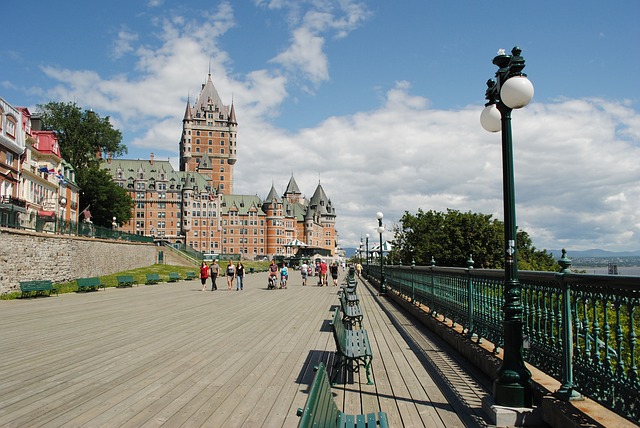
QUEBEC — Police chased anti-G7 protesters through the streets of Quebec City on Friday, as small pockets of activists carried out a series of actions aimed at tiring out security forces and disrupting activities related to the summit.
While the protesters occasionally blocked traffic and on one occasion set a pair of sofas on fire, as of early evening, their protests were largely peaceful as they played cat and mouse with police through the city streets and parks.
They were closely followed at all times by a large police presence that included flashing sirens, helicopters, the occasional police dog and large contingents of officers marching in formation.
Quebec City police said they arrested six people for unlawful assembly and one for obstructing the work of a police officer over the course of the day.
“I don’t believe in democracy any more,” said one 28-year-old tattooed protester, who went by the name of Cantsin. “A lot of people here will tell you the same thing.”
A few hours after a morning protest that briefly shut down a main highway to La Malbaie where the G7 was taking place, city police were forced to close the northbound direction of a major boulevard for about an hour after protesters set fire to lawn chairs and two couches in the middle of the road.
Later, dozens of armed officers could be seen marching two-by-two through the narrow streets of Old Quebec City, banging batons on their plastic shields as they ordered small groups of protesters to disperse.
Around noon, activists gathered in a shady park not far from the provincial legislature buildings, where their anti-capitalist peers set up a kitchen and served couscous, minestrone soup and bread pudding.
Danielle Lambert, 58, said she wants wealth to be redistributed in society by having governments get serious about going after offshore tax havens.
“It’s the least they can do,” she said, eating her couscous.
Her friend, Marie-Christine Gagnon, 38, called the G7 meetings a “big charade.”
Prime Minister Justin Trudeau talks about the environment and then uses tax dollars to buy the Trans Mountain pipeline from Kinder Morgan for $4.5-billion, she said.
By mid-afternoon, a few dozen protesters were facing off with police on the Plains of Abraham. Many were dressed in black and masked, as police in riot gear slowly surrounded the park.
There, a masked woman confronted a handful of the officers, gesturing wildly as she accused them of violating the protesters’ rights.
“We haven’t broken anything, we want to gather, we want to have the right to gather, and you’re taking that away from us!” she said.
The protester, who declined to give her name, addressed the officers one by one by their badge numbers, questioning their values and asking them how they could support the hundreds of millions being spent on the summit.
“You think it’s ok your parents (in seniors’ homes) eat potato puree while the big leaders eat foie gras?” she asked.
Not all the demonstrations in Quebec City on Friday required a police presence.
About 75 students from around the country travelled to the city with the World Vision humanitarian organization in support of girls living in conflict and disaster.
Students wore white graduation robes and walked around the legislature buildings. A few of them wore black robes, symbolizing a specific woman for which they were marching.
Toronto-native Cherie Wai, from University of Waterloo, was marching on behalf of Fatuma, a woman from Somalia who fled violence in her country and lived in a refugee camp in Kenya.
“She worked really hard and got a scholarship to study in one of the best schools in Kenya and now she is studying at the University of Toronto in Health Science,” Wai said.
The G7 summit is an annual gathering of the leaders from Canada, the United States, the United Kingdom, France, Germany and Japan and Italy — which represent the majority of global wealth. The European Union also attends the summit as do other dignitaries from around the world. Canada has not hosted the summit since 2010.